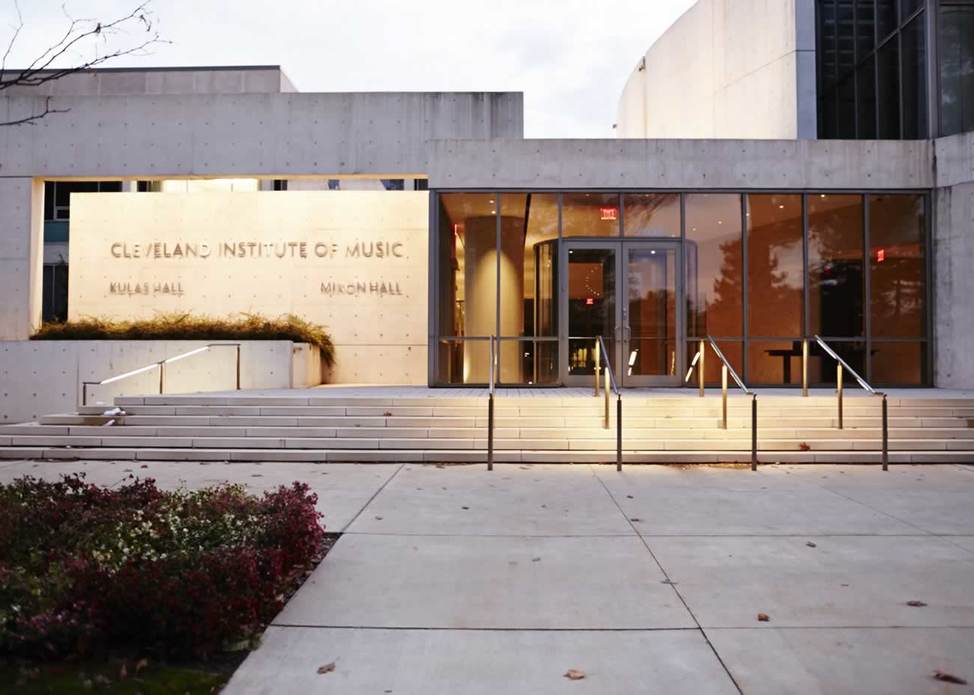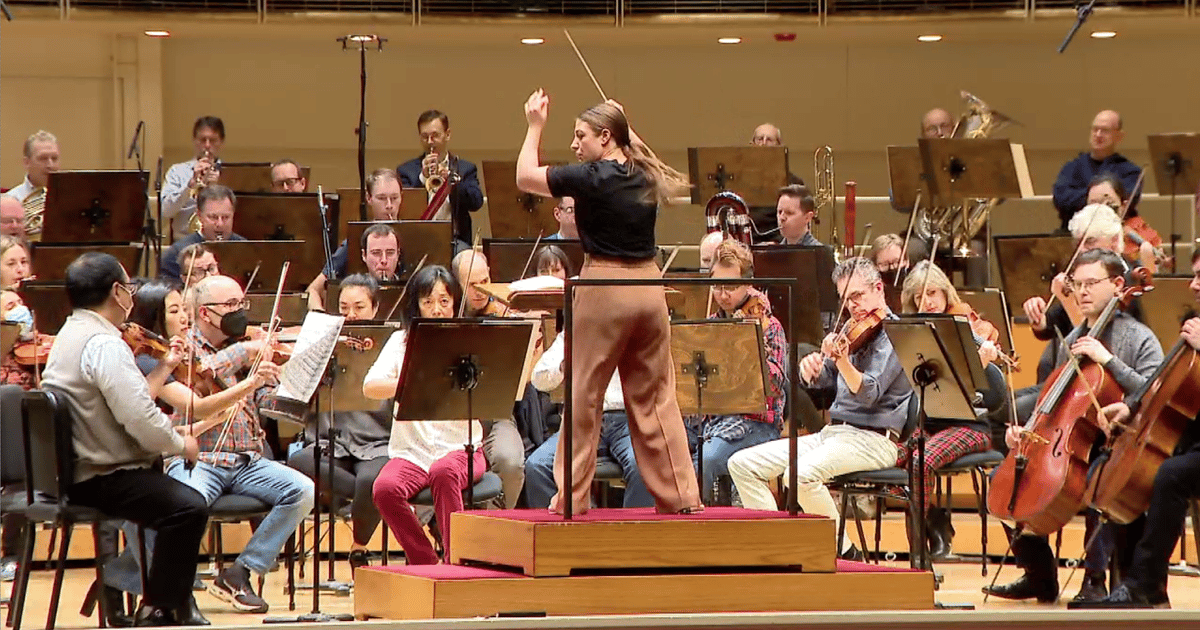A review in the New York Times? That’s history.
mainNews of Allan Kozinn’s departure from the New York Times has gone viral in the music and media communities, with tributes flowing in from many quarters for one of the last honest and knowledgeable writers on the Manhattan main drag.

Pulitzer winner Tim Page writes from California:
Allan Kozinn could write about anything — with grace, intelligence, perspective and a sly and subtle wit. He had EARS, as they say, and he employed them for more than three decades at The New York Times. I had hoped that things were getting better on Eighth Avenue…. True, the NYT still has some fine critics, but only one of them is now on staff. A bad day for anybody who cares about music.
More pertinent still is this comment from a leading PR who, like most others, finds it impossible to get a review of interesting concerts – as distinct from show-off stuff – into the paper. This person tells Slipped Disc:
Since Steve Smith left for Boston, it has been a nearly impossible task to get reviewed unless you are über-famous. Most of the classical music department really doesn’t want to give a somewhat lesser-known artist a chance. They want free tickets to the best concerts in town. In a way, they really aren’t reviewing, but attending a great performance and mostly praising what they attend. Occasionally, in an opera or orchestral review, you’ll get a quibble. But, mostly, critics write about – and attend – performances they actually want to hear because they already are familiar with the artists. Where does that leave hundreds of extremely talented and worthy performers: Nowhere, I’m afraid.
There’s no place left in the Times for good music. Its reputation as a newspaper of record died today.





I think its reputation as a newspaper died quite a long time ago. This is only the end-stage of a long process of dumbing down for American culture in general. Other newspapers that once had aspirations to culture already went through the process of shedding their cultural reporting. Example: the Boston Globe, once the newspaper of the USA higher education capital, had four or five regular classical music reviewers in the 1980s – Richard Dyer, Anthony Tommasini, Richard Buell, Derrick Henry, and more. That period was already gone by 20 years ago. Likewise, newspapers in North Carolina completely eliminated their classical music reporting at least 15 years ago (replaced by the critics of cvnc.org).
And before Richard Dyer, who really stayed at the party too long but was tremendous and valuable in his earlier years, there was the wonderful Michael Steinberg. Michael wasn’t afraid of anyone: not BSO management, not BSO players, not artist management corporations. Unlike nearly all critics writing in big cities these days, he just didn’t care if he was not invited to the party. His only “fault” was that he was smarter than anyone else in the room, knew it, and wanted the room to be certain. What really counted was his copy.
“Can anyone confirm this news?” Just kidding.
This is really unfortunate. Allan was the only classical critic on staff at the Times who really knew rock and was willing to bring that knowledge into his reviews. Other critics seem more inclined to hold popular styles at a certain arm’s length. One hopes the NYT isn’t going in the direction of the Village Voice, which got rid of all of its respected (and higher-earning) critics to the point where there was no substance left to the publication.
Damn right, Brian!
I submit that it was the Times’ longstanding and relativist policy of elevating rock, and much else, to the status of classical music that began their descent into the morass. Some serious self-reflection is long overdue there but they are not capable of it.
You have to laugh at the phrase “who really knew rock and was willing to bring that knowledge into his reviews.” Rock has all the popularity and support it needs, pretending that it has some more serious role is not a positive. The JJC comment makes the necessary point.
Norman, Tim Page, Tom Moore and Brian all make excellent points–sad, but true. I would only amend Tim’s observation to say that Allan Kozinn HAS ears, but they will have to be used elsewhere and I hope some media organization is smart enough to grab them.
Even worse, the New York Times only lists announcements for concerts that THEY think are worth attending. In the old days, the Times listed EVERY concert happening every day, but about 10 years back they decided they had the right to be selective…
You can thank Ms. Jodi Kantor for that.
I don’t even read the NY Times any more, since Tomassini took over.
I don’t need him to reiterate the program notes, thank you. I also don’t care about what the pieces on a program have in common (oh my god, all the composers on this program had an ingrown toenail when they wrote these pieces, how wonderful); I would just like to hear good music. And I do habitually attend concerts with ‘old’ music on the programs; it’s nothing to be celebrated to me, that someone is playing a new piece which I will probably hate. I wish Tomassini would just disappear and we could enjoy music again. His influence causes presenters to give us programs that I have little interest in hearing. And worst of all, he has already decided who his favorites are and his reviews are predictable. (Please at least try to criticize Robertson, Levine, Spano, or any of the new music performances, you’re a goddamn critic after all)
I find a patronizing overemphasis on contemporary music in both the reviews of Anthony Tommasini in the NYT and especially Jeremy Eichler in the Boston Globe. Eichler spends a disproportionate part of his reviews to celebrate even the shortest 20th or 21th century work (as long as it is not late romantic), and brushes off the rest with a few sentences.
Thank you for pointing this out: Indeed, Tommasini shamelessly promotes his favorites: Spano, Robertson, Levine, Andsnes, Thibaudet, etc — as well as his personal friends (such as Gilbert Kalish, Ursula Oppens, and others), and he’s quick to shame artists who don’t perform works by living composers. He also clearly demonstrates a bias for young, good-looking male performers. Under his watch, the NY Times offers extensive coverage to modern music, which is disproportionate to the public’s interest. This is an abuse of power, and extremely unprofessional.
Yes. At the very least, comments should be allowed after reviews so people who know better than the critic may present alternate viewpoints.
A Times critic is allowed to ramble about something most people may disagree with, and nobody is permitted to comment to refute them. Afters years of this, some of them are woefully out of touch.
I cancelled my NYT online subscription today and I told them why.
Good for you, Alexandra!
“Since Steve Smith left for Boston, it has been a nearly impossible task to get reviewed unless you are über-famous. Most of the classical music department really doesn’t want to give a somewhat lesser-known artist a chance” ABSOLUTELY NOT TRUE ! ! ! If you’re a strapping young man, the NY Times will review your concert.
While it’s a shame about Allan Kozinn, the vituperation in some of these comments about newly-composed music or twelve-tone music is equally shameful. And the irony of it all is that Allan Kozinn’s greatest strength (excepting his overuse of the word, “texture” and sometimes inappropriate adjectives) was precisely in his ability really to HEAR music for the first time and write compellingly about it.
Well, nobody mentioned 12 tone music, much of which is 100 years old.
My main problem is that the critics, led by Tomassini, tend to pan many conventional programs. They criticize musicians for performing a lot of the greatest music ever written. This is music that musicians want to play and listeners want to hear.
I’ve seen it countless times where a large portion of the audience simply comes late when there is a new piece opening the program.
It is very difficult for newer artists to gain favorable words from the Times without playing music that few people want to hear, save a few kids living in Brooklyn who have no money to give.
How much ticket revenue does a show at The Knitting Factory or Poisson Rouge bring in? How much ticket revenue comes in when The Berlin Phil plays Mahler or Beethoven?
Doing new music is wonderful. Let’s not pan concerts/organizations that do new music, but apparently not enough of it, for Mr. Tomassini.
“I’ve seen it countless times where a large portion of the audience simply comes late when there is a new piece opening the program.”
I’ve also seen the opposite: part of the audience apparently coming for the new work in the middle of the program and leave at intermission, thus skipping the 30′-40′ 19th century repertory staple at the second half. Most people come to listen to what they want.
Let me be more clear…
I’ve been to almost 4,000 concerts and I’ve seen what I described many times and never seen what you described.
I believe you when you say you’ve seen a white tiger although I’ve never seen one.
Warrior, let me be clearer.
I have routinely been seing what you are describing very often, in both Europe and the US, since the 1970s, when I started attending concerts as a child. It’s a practice that has been acknowledged by audience, artists, managers, critics – also in writing. No question about that.
The opposite, audiences coming for the contemporary work and skipping the romantic staple, is something I’ve witnessed in Boston, in the last few years. It’s been mentioned in reviews at the Boston Musical Intelligencer. Maybe it’s symptomatic to Boston, where the disproportionate presence of educational institutions brings along a disproportionate public for contemporary music.
My point is, the kind of mixed programs that many critics now advocate, don’t necessarily work. If the program includes a turn off, some people stay home, others skip part of the concert.
Furthermore, it becomes old really fast, when a critic spends an entire review providing program notes and raving about (or criticizing) the program presented, but rarely has insights into the actual performances that take place.
I cancelled my New York Times subscription today, and I told them why.
Olin Downes was the chief NYTimes music critic when I was a music-loving youngster in New York. I well remember one of his reviews. He went on and on about MItropolis’s performance of the Brahms first symphony. And followed that with this sentence: “And after the intermission Mitropolis conducted Mahler’s First Symphony. Period. I also remember his fulminating about Mahler’s use of an anvil in his Sixth Symphony.
Some of the guys commenting above fulminate about Tomassini’s favorable comments about recent music and musicians–especially conductors–who program such music would no doubt cheer a return of Olin Downes who was on their side–except that Mahler was then the new composer preferably to be done without. I admire your courage in wanting to listen to some Beethoven symphonies (though you can no doubt do without the 2nd and 4th), Brahms’s 1st and 4th, a few pieces of Mozart, the Mendelssohn violin concerto and maybe the Franck d-minor symphony. Why listen to something new when the old music is so good? Sad; very sad.
Don’t complain. At least the NY Times is still quite good when it comes to social-political matters. So there’s that.